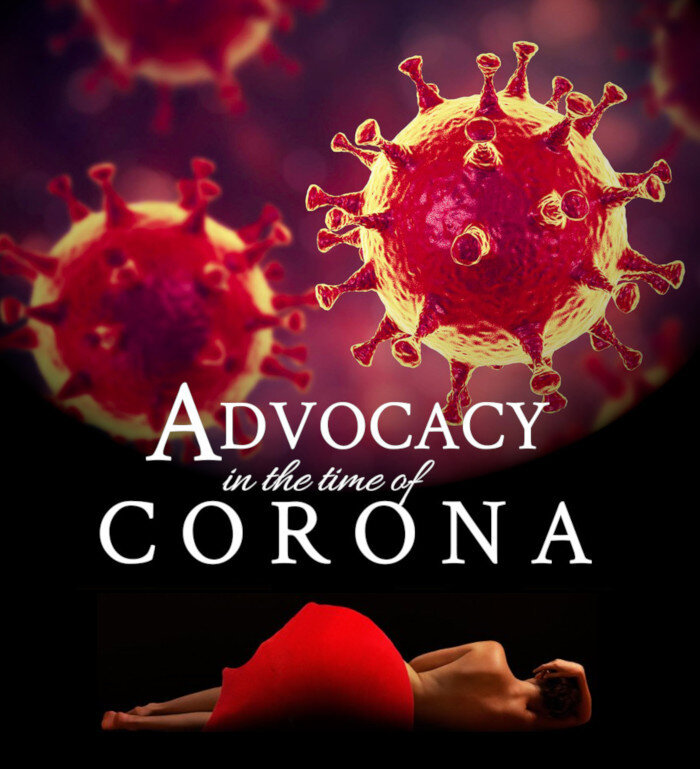Advocacy In The Time Of Corona

For our treasured clients and their extended families, we offer a few recommendations to advocate for your needs during the pandemic that is coronavirus (Covid-19).
A Port In The Storm – Our work with cancer patients has always led us to being out front on the latest science and facilitating access for our clients. Treatments only available through clinical trials and manufacturers’ expanded access programs are often the way in. Over the weekend we investigated the early stage therapies for treatment of the acute respiratory failure seen thus far with Covid-19 patients and yesterday morning we spoke with the scientific officer of one of the companies whose product (approved in Europe) can potentially save people with the acute symptoms of Covid-19—the cytokine storm that happens in their lungs. If a loved one tests positive and their condition becomes severe, we can share our knowledge with the treating doctors. If they see value, they in turn will contact the companies to seek approval for the treatment.
Consider Less-Is-More Treatments For Orthopedic Problems – The surgeon general has asked that elective surgeries such as knee and hip replacements be postponed indefinitely to preserve hospital space for those affected by Covid-19. This comes on the heels of the opioid crisis and a reluctance to prescribe pain medication making it doubly hard on patients with these conditions. We have worked with the two top doctors who specialize in regenerative therapies in the treatment of spine, neck, hip, shoulder and knees and can help you get in to see them. These minimally invasive procedures use your own biological material to restore function without drugs and major surgery.
Know Thy Medical Story – As our doctors and hospitals are stretched in unimaginable ways to meet the medical needs of people in their communities, it has never been more prudent to have your medical records organized, summarized and available. Family members will most likely be prohibited from entering nursing homes, rehab facilities, ER bays and especially ICU units. By proactively having a written list of conditions, medications, allergies, medical proxy, advanced directive wishes, insurance information, etc., you reduce the time it takes for a doctor to understand your medical picture and increase his/her ability to make sound recommendations for your care. We have considerable experience creating condensed and complete medical summaries for our clients.
Now would be a good time to review your advanced directive if you have one. If it says you do not want a breathing machine (aka ventilator), you may want to consider modifying it for Covid-19. Acute cases in a hospital setting often require a ventilator and they are in short supply. Physicians are required to follow advanced directives/POLST documents if they are aware of them.
Double up on drugs – For those with chronic conditions like diabetes, high blood pressure and AFib whose medications are potentially life-saving, ask your pharmacy to refill your medication sooner. Insurers are, in many cases, allowing patients to have extra inventory than is normal in the event that supplies are temporarily cut off.
Avoid getting in the way of cars and buses – I donated blood at a New York Blood Center drive on Saturday. When I spoke to a patient representative at the center Monday morning, they told me that they do not have the tests to screen blood donations for Covid-19. My suggestion is to avoid speeding when driving and look carefully when walking, running or bicycling, all in an effort to not be in an accident and need a blood transfusion. For the moment, that donation could infect you with the virus.
Nourish Yourself – Based on many estimates, half or better of Americans will test positive for the virus at some point. In addition to all the suggestions being made like frequent handwashing and limiting your exposure to people, you can boost your immune system which we know will help mitigate the symptoms of the virus. Eating a healthy diet (fruits, vegetables, grains, beans, nuts, etc.) and getting exercise are the best vehicles for doing so. Feeding your core with high quality foods, staying connected with others through phones and devices and limiting the amount of news you take in will give your cells and soul the nourishment they need to get through this with the least upset.
On behalf of AnnMarie, Nan, Karen and Martine, please be well and safe.
AnnMarie Quintaglie McIlwain
CEO
Patient Advocators LLC
